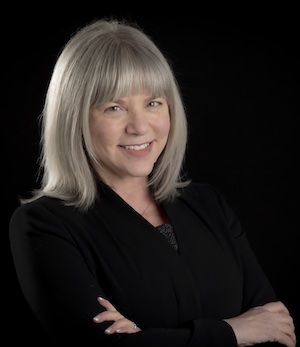By Blair Kinsey
For more than two decades, Marjorie Hass has been engaged in the liberal arts and higher education worlds—as a professor, provost, and college president. Through this extensive experience, Hass has seen firsthand the necessity of well-rounded, deep-thinking leaders in academia.
In 2021, Hass decided to capitalize on a “unique opportunity to make an impact in our sector at a national level,” she said, by becoming the president of the Council of Independent Colleges, an organization that supports and celebrates independent colleges and the liberal arts education they provide.
“I really am thinking about the ways we’re preparing leaders to lead in this context,” Hass said about her position. “I felt I would have something to contribute to the national conversation on how we form, develop, recruit, and sustain leaders in independent higher education.”
Beyond this, Hass said she “could see how challenging this era is for institutions like Rhodes, and like Muhlenberg, and like Austin College,” the three colleges at which Hass held leadership positions. “I wanted to make an impact on the viability of our sector as a whole because it is so important. I wanted to make sure that access for students continues to grow.”
Hass became a professor at a liberal arts institution shortly after completing her PhD, when she joined the philosophy faculty at Muhlenberg College.
“I really fell in love with this model of education when I was at Muhlenberg, and I loved the opportunity to teach and to really engage with undergraduates, but I also loved the way that it pushed me intellectually,” said Hass. “I really found my own scholarship broadening in ways that were exciting to me. And I think one of the great things about teaching at a liberal arts college is you tend to have a lot of opportunities to do interdisciplinary work, to think beyond just your very narrow technical field of expertise.”
This interdisciplinarity led Hass to expand her own thinking, she said, “in ways that has made me not just a better scholar, but a better leader.”
“The problems that face us now, none of them can be solved easily,” Hass explained. “We have to bring our very best collective thinking to these problems. . . . And I think what the liberal arts do for you is they give you the tools to think more deeply and widely. They prevent you from imagining there’s a narrow technical solution.”
However, one of the things Hass worries about is who will be willing to step forward in the future for leadership roles. “When you talk to emerging leaders now, they’re not sure they want to be deans, they’re not sure they want to be presidents,” she said. These jobs have become so difficult, she observed, and everyone can see how hard they are. “Just at the moment when we need a diverse energetic group of leaders to move us forward, people are starting to think, you know, am I willing to make the sacrifices that leadership requires?”
Hass eventually became the provost at Muhlenberg. Then, in 2009, she became the president of Austin College in Sherman, Texas. It was here that Hass was inducted into Phi Beta Kappa as an honorary member.
For Hass, being a member of Phi Beta Kappa “means being part of a network of people who care deeply about ideas and about the way ideas shape our reality,” she said. “One of the most important things about Phi Beta Kappa is that it keeps alive the importance of the liberal arts. It is a real mark of deep commitment to high-quality learning and teaching.”
“I really like their mission to encourage deep and free thinking,” Hass said of Phi Beta Kappa. “I think that’s more important than ever in some ways. I know they’re working very hard to ensure that Phi Beta Kappa recognizes excellence in a variety of forms. And I really appreciate that.”
Hass encourages new and future ΦBK members to recognize the value of the education they’ve been able to claim. “It’s so important to remember what a narrow slice of the world is able to access this kind of rich learning and what a privilege that is and what a responsibility it is and how you put your education in service of the world,” she said.
Hass firmly believes that “the kind of education you are able to access should be tied to your talents and your dreams and not be just a function of your family income,” adding that “we should all be supporting public investment in high-quality education” to make it more widely accessible.
Informed by her own engagement with the liberal arts, Hass has mentored women leaders across the country throughout her career, as well as published A Leadership Guide for Women in Higher Education in 2021.
Blair Kinsey is a senior at Rhodes College pursing a major in mathematics and a minor in English. She was inducted into the Society by the Gamma of Tennessee chapter there in May of 2023.




